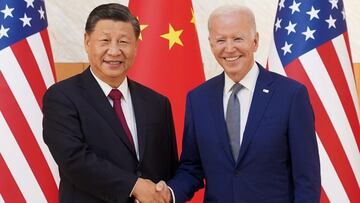AI
U.S. Fears China’s Use of Artificial Intelligence as Weapon of Mass Espionage
The FBI and other U.S. government agencies are suspicious of China’s goals and the source of its AI breakthroughs.

The covert conflict between the United States and China has opened a new chapter on the threshold of 2024. Once again, the issue revolves around artificial intelligence. Its dominance in the coming years will be one of the keys to the modern world. As The Wall Street Journal gathers, China aims to achieve historic advances in this field with a deadline of up to 2025. The United States, faced with this challenge, has identified artificial intelligence developed within its borders as one of the critical elements to protect.
The Race to Master Artificial Intelligence
The FBI and other government agencies believe China can use artificial intelligence to conduct a different kind of espionage than usual. Their new goal, thanks to AI, would be to “access and store data on Americans on a scale never before possible. But they would do it not only with technology developed there, but on the basis of stolen US patents. “Now they are working to use AI to improve their already-massive hacking operations using our own technology against us,” said Christopher Wray, director of the FBI, earlier this year.

The same media reports that U.S. officials believe that China’s current database is huge, but messy. Thanks to AI, they could assign a first and last name to every item associated with a person in hundreds of millions of lines of code. Even Microsoft, through its current president, Brad Smith, has weighed in on the matter: The big question initially was whether anyone, including the Chinese, was able to use machine learning and essentially AI to combine these data sets and then use them for targeting. We’ve seen evidence over the last two years that this actually happened.”
China’s current plan, according to U.S. authorities, is exactly that: to give consistency to the data they have stolen from banks, insurance companies and government agencies over the past decades. A new kind of espionage that could track a person’s travels or what diseases they have. And the threat is serious. “China can harness AI to build a dossier on virtually every American, with details ranging from their health records to credit cards, and from passport numbers to the names and addresses of their parents and children,” Glenn Gerstell, a former adviser to the National Security Agency, tells the Wall Street Journal. “Take those dossiers and add a few hundred thousand hackers working for the Chinese government, and we’ve got a scary potential national security threat.”
One of the most high-profile examples involves Apple. Xiaolang Zhang was supposed to take a flight to Beijing in July 2018. He never took it. Before he boarded, law enforcement was waiting to arrest him, accusing him of stealing company secrets related to the Apple Car, the autonomous vehicle project that has hovered over Cupertino for so many years. The trial finally took place in 2022. The verdict was clear: guilty. China and domestic companies have always denied involvement in these cases.


